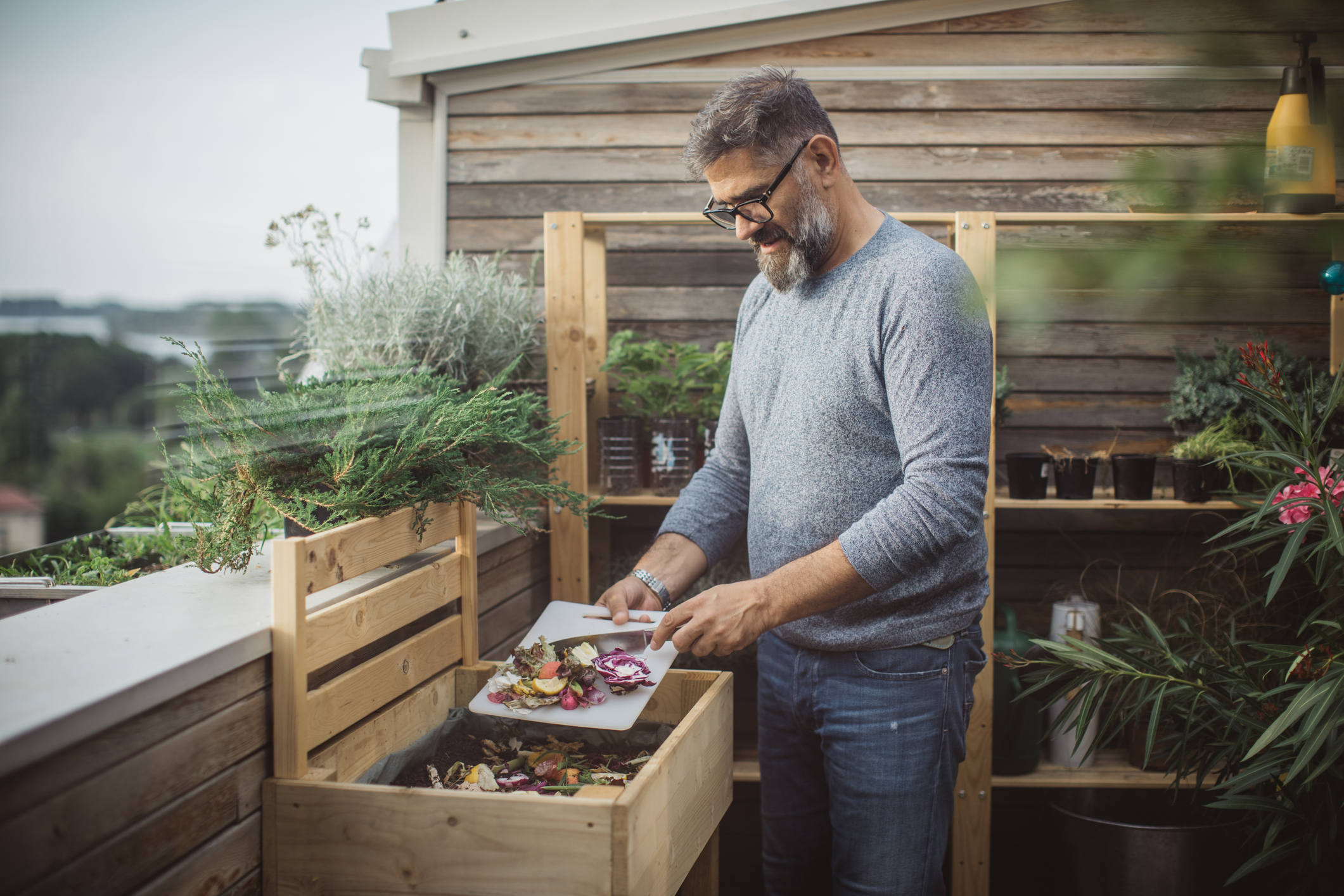Urban Composting Guide: How To Compost In The Middle Of The City
Urban composting does not have to be daunting. You can compost in the city, and maybe even try some urban worm composting!


Sign up for the Gardening Know How newsletter today and receive a free copy of our e-book "How to Grow Delicious Tomatoes".
You are now subscribed
Your newsletter sign-up was successful
Urban composting enriches the soil and supports healthy plant growth, even in the middle of a big city. Composting is the managed decomposition of organic waste into nutrient-rich material used for soil amendment. We think of a compost pile being relatively easy to manage with a lot of garden space or out in the country, but what if you’re a city gardener? Composting in urban areas can be done on a smaller scale.
Benefits of Urban Composting
Composting in the city has many benefits, as it does in any area. If you produce waste and grow plants, there are several reasons to compost:
- Give your waste new life instead of sending it to a landfill or incinerator. Compost is made from kitchen and yard waste.
- Good compost supports healthy plant growth by providing needed nutrients and refreshing spent soil or amending poor soil.
- In addition to adding nutrients to the soil, compost lightens compacted soils to improve aeration and root growth.
- By using compost to soil, you reduce the need to use chemical fertilizers. You’ll also save water, as compost improves water retention.
How to Compost in Urban Areas for Beginners
Composting isn’t difficult, but it also isn’t as easy as simply piling up all your food scraps. Composting in a big backyard in the country is different from composting in the city. Urban composting presents some unique challenges, but it can still be done. Here’s what you need to know to get started with urban composting.
What You Will Need
All you really need to get started is a container and waste material. The most important consideration is the container. Living in the city, you need an appropriately sized container that fits but still produces usable amounts of compost. You also need a container with a good lid that will contain odors and prevent pests, like rodents, from getting inside.
Where to Put Your Compost Container
With at least a small outdoor space, you have the option to use a medium or large compost bin outdoors. Ideally, place it away from the house. If it needs to be nearby, you can always try porch or balcony composting.
Another option is making compost indoors. Urban worm composting might sound creepy- crawly, but it’s actually ideal for indoors. All it takes is a large, sealable plastic storage bin with holes drilled in the top and some earthworms. They’ll quickly turn your organic waste into rich compost with no mess.
What You Can (and Can’t) Compost
Once you have a container and a location, it’s time to add the waste. You need a mix of green (nitrogen-rich) and brown (carbon-rich) waste. An ideal mix of browns and greens has a ratio of one part green to two or three parts brown.
Sign up for the Gardening Know How newsletter today and receive a free copy of our e-book "How to Grow Delicious Tomatoes".
Green waste includes most of your kitchen scraps, like vegetables, fruits, clean eggshells, coffee grounds, and tea. It also includes grass clippings and weeds. For brown material, add dry yard waste material, like leaves, twigs, pine needles, or dried grass and vegetative clippings. Other brown waste is sawdust, paper, brown cardboard, and natural fabrics.
Here are examples of what not to put in your compost pile:
- Fish, meat, oil, grease, or bones
- Dairy and eggs
- Weeds that have set seed
- Diseased plants
- Coated paper or cardboard
Urban Compost Maintenance
First, leave your compost pile alone for a week or two. This allows microorganisms in the center to do their work and increase the temperature of the compost. Then, turn the pile with a pitchfork or spade. The goal is to bring the inside material to the outside of the pile. Leave the pile alone to reheat, and then turn again. You should be turning it every week or two.
Composting in an urban setting is doable, but many municipalities now offer city-wide composting services. If you’re not ready to start your own compost pile, check with your city to find out if collects organic waste to make and distribute compost.

Mary Ellen Ellis has been gardening for over 20 years. With degrees in Chemistry and Biology, Mary Ellen's specialties are flowers, native plants, and herbs.